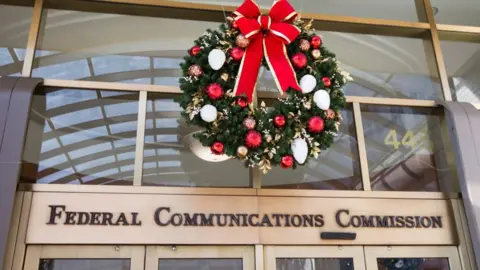In a significant legal development, a U.S. court has recently cast aside the efforts of the Biden administration to reinstate the “net neutrality” regulations that had been globally scrutinized since their inception. This ruling, which asserts that the federal government lacks the authority to regulate internet service providers (ISPs) in the same way that it regulates utilities, has been a watershed moment, especially for advocates of an open internet. Those who championed these protections believed that they would ensure that ISPs such as AT&T would treat all types of legal content on their networks equally, thereby preventing any preferential treatment.
The origins of net neutrality rules trace back to the era of President Barack Obama, whose administration introduced these regulations via the Federal Communications Commission (FCC). However, they faced repeal during Donald Trump’s presidency, underscoring the contentious nature of this debate that has persisted for years. With Trump’s impending return to the White House, this latest court ruling appears to definitively close the chapter on a prolonged and polarizing legal battle regarding internet regulation.
Commentators acknowledged that the judges involved in this case highlighted the cyclical nature of regulatory shifts in U.S. governance, indicating that administrations have frequently oscillated around the issue of internet regulation. Nevertheless, the court emphasized that it would no longer extend “deference” to the FCC’s interpretations of laws, leaning instead on a recent Supreme Court verdict restricting federal agencies’ powers to interpret legislation. This shift potentially foreshadows further limitations on regulatory powers in the future.
In response to the court’s ruling, Brendan Carr, a Republican FCC member appointed by Trump, expressed satisfaction that the decision invalidated what he labeled the Biden administration’s “Internet power grab.” Conversely, Jessica Rosenworcel, the last Democratic commissioner at the FCC, articulated concern over the ruling, stating that the issue now rests in the hands of Congress. She highlighted the public’s desire for a “fast, open, and fair” internet, urging legislative action to enshrine net neutrality principles into federal law.
The contention over net neutrality in the United States previously emerged as a high-stakes issue, pitting major ISPs against tech giants like Google and Netflix. During its height, even comedians like John Oliver garnered attention for the cause, mobilizing significant grassroots advocacy. However, the fervor surrounding the issue has dulled since the repeal of net neutrality rules in 2018.
The recent ruling, it must be noted, does not disrupt the ongoing state-level net neutrality initiatives that some regions have adopted, which similarly aim to protect consumer rights and maintain equitable access to internet services. Nonetheless, proponents of national legislation maintain that such overarching rules are critical for preventing ISPs from throttling or imposing additional charges on specific content, ensuring that consumers maintain optimal access to information regardless of their service plan.
Public Knowledge, a group advocating for progressive internet policy, criticized the ruling as detrimental, asserting that it undermines the FCC’s capacity to govern privacy protections and enact other essential regulations. They argued that the court’s classification of internet service providers as mere “information services” rather than telecommunications companies is a misinterpretation that leaves a “dangerous regulatory gap” affecting consumers.
In contrast to these concerns, USTelecom, an industry trade organization comprising members like Verizon and AT&T, heralded the ruling as a “victory for American consumers.” They contended that the decision would stimulate greater investment, innovation, and competition in the evolving digital marketplace.
As net neutrality continues to be a divisive yet pivotal issue within the U.S., its implications for consumers, service providers, and the broader ecosystem of internet governance remain profound and warrant close scrutiny from all stakeholders involved.



